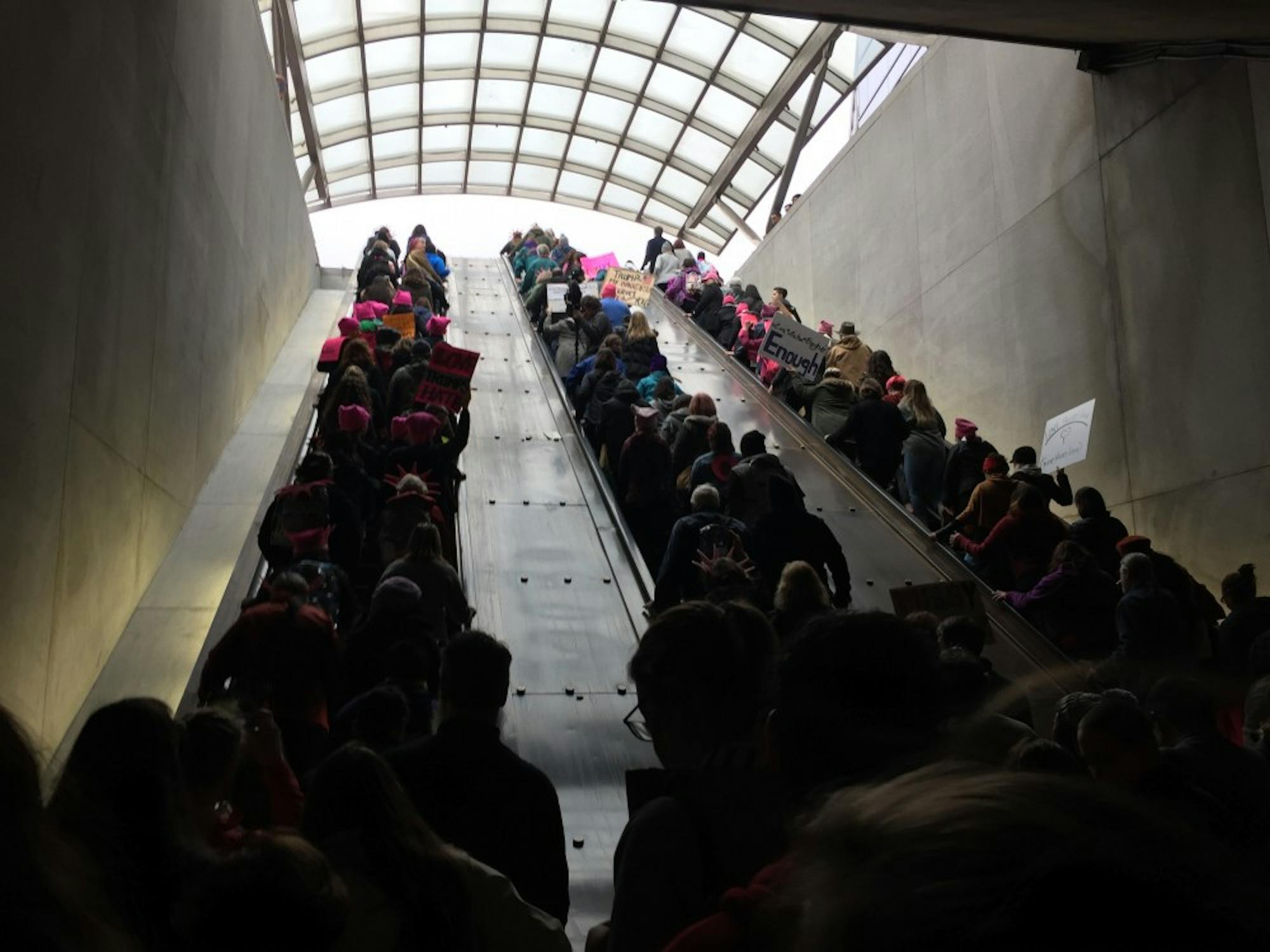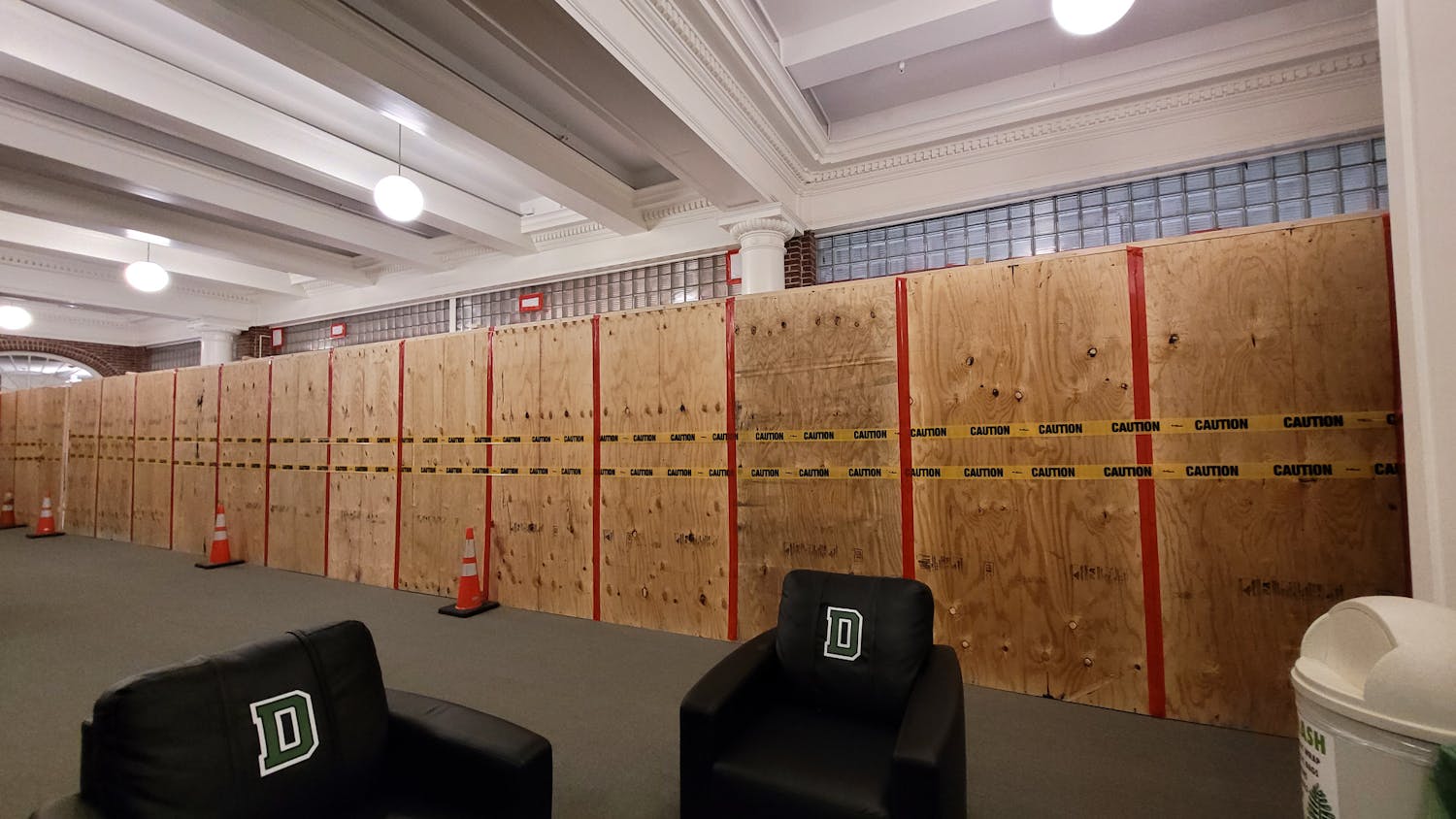On Jan. 21, the day after Donald Trump took office as the 45th president of the United States, at least 50 Dartmouth students carpooled nearly eight hours to Washington, D.C. to participate in the Women’s March on Washington.
The march was one of several organized around the nation to demonstrate for women’s rights and protest Trump’s presidency. The D.C. march alone brought in over 2 million demonstrators; worldwide, the marches drew over 4 million.
The 2016 U.S. presidential election was unsettling for D.C. native Jennifer West ’20, who, as someone who worked for former presidential candidate Hillary Clinton’s campaign and the Democratic Party, felt at a loss.
“I was so close to where everything was happening but feeling like I was powerless and that the values that were being represented in the transition were not mine,” she said.
West said that she respects the peaceful transfer of power but disagrees with the new administration’s policies, especially the threat to Planned Parenthood. In response to these policies, West decided to organize a group of seven students to attend the march in D.C.
Diana Quezada ’20 was supposed to travel to the march with West’s group, but the other members left too early for her to make the trip with them. She ended up riding to D.C. with postdoctoral student Carissa Aoki GR’16 , who rented a 12-person van for the trip and advertised seats on the Upper Valley Facebook page.
West said that the march was a way to channel her discontent with the new administration in a way that did not seek to delegitimize the presidency. She noted that it is important for people to understand why the march took place, since many people do not believe that Trump’s presidency has had a significant impact on women. She referenced a tweet that circulated the day after the march, which read, “Rights that have been taken away from women since Trump has been inaugurated” next to a blank Google document.
“I think it’s much more than what rights have we actually taken away,” she said. “It’s that the administration had indicated on the campaign trail that they were going to put in place policies that would be really harmful to our goals and values.”
Quezada said that it is important that there is a lot of resistance happening right now. She feels like there is not enough opposition on campus, which is one of the reasons why she decided to attend the march. Her other reason was to make up for the lack of diversity in events like the march, she said.
“I feel like me being there, rather than just saying ‘We need more people of color here, we need more intersectionality here’ is me actually taking action,” she said.
West held that the crowd itself was less diverse than the organizers had anticipated. However, Aoki said that adding Palestinian-American activist Linda Sarsour, civil rights activist Tamika Mallory and human rights activist Carmen Perez as co-organizers helped to make the march more inclusive. Furthermore, West and Aoki agreed that many of the speakers were either women of color or from underrepresented backgrounds and tackled issues ranging from police brutality and LGBTQIA rights to Islamophobia. Aoki thought that it was clear that a lot of the marchers were there supporting an intersectional platform. West said that her favorite speaker was Senator Tammy Duckworth of Illinois, who was Illinois’s first Asian-American woman elected to Congress and the first disabled woman elected to the House of Representatives.
Aoki mentioned that she marched in D.C. with a group called “500 Women Scientists,” which had organized a meeting place for scientists and supporters of science from all around the country to march together. She also ran into several people from Dartmouth, including biology professor Celia Chen and recent graduate student Julia Bradley-Cook ADV’14.
She noted that attending the march was an essential first step to keeping pressure on the president, whom she felt had demonstrated a disrespect for women and a lack of empathy for the experiences of immigrants and people of color.
Aoki also said she was appalled by the president’s “lack of understanding of the fundamental principles of democracy.”
“I always thought that our democratic institutions were more or less immune to the rise of autocracy or kleptocracy, but now that I see that they’re less immune than I thought,” she said.
Going forward, Aoki hopes that Dartmouth continues to stand up against the president’s new immigration order. College President Phil Hanlon and Provost Carolyn Dever sent a campus-wide email on Sunday advising students affected by the seven-nation travel ban to avoid all international travel.
Quezada said that she would like to see more support from the College for inter-community talks and off campus events. She noted that her other friends’ institutions provided them with charter buses to get to D.C., while the College did not offer students transportation to or from the march.
“I would like to see the school taking more action towards organizing on campus, and if not, allowing students to go elsewhere to do so,” she said.
But Quezada maintained that attending the march is only half of the battle. She said that the follow-up is even more important and that she is concerned that people will be content with getting likes on their videos and pictures on Instagram.
West agreed that it is important for the Dartmouth community to stay active. She is a member of the College Democrats, which writes letters, calls senators and brings speakers to campus. West believes that it is also important for people to follow the news and pay attention to legislation and executive orders, as her biggest concern is the idea of “alternative facts.” West also stated that she would like to get the campus more involved in the next couple of elections.
“New Hampshire is a crucial swing state,” she said. “If we are serious about trying to swing the House and the Senate in 2018, New Hampshire is going to be important for that.”




